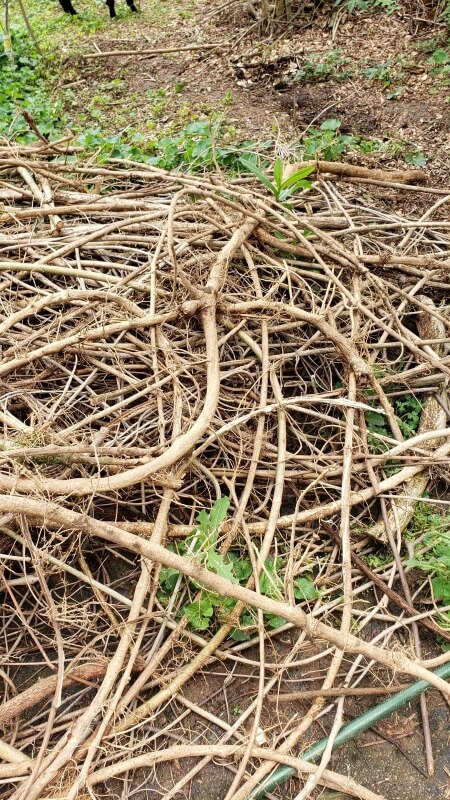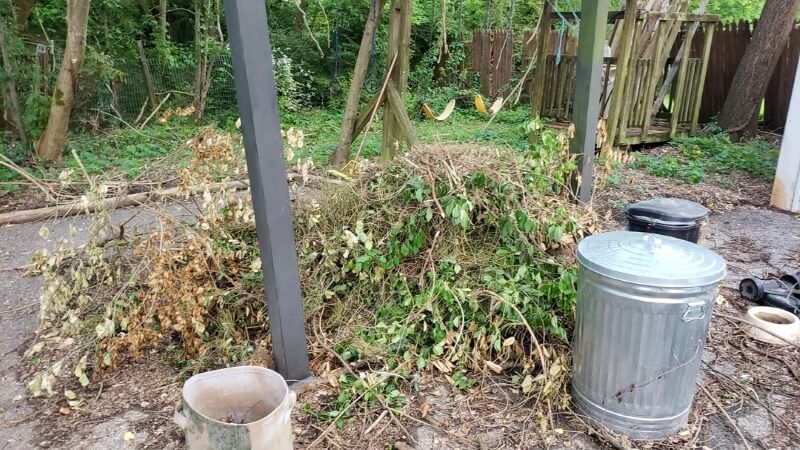Dealing with invasive species in your garden is among the more frustrating jobs when trying to cultivate your green space.
They can grow quickly, spread widely, and be a nightmare to remove properly from the soil. But getting them out of your garden isn't the only tricky task; knowing what to do with them afterward is also a notable conundrum.


That's why one gardener took to the r/NativePlantGardening community to ask for advice about how to deal with wisteria, wintercreeper, and Asian honeysuckle they had removed from their yard.
"If anyone has ideas of what to do with [wintercreeper] I'm open to just about anything and if anyone knows how long the wisteria lives for after being cut at both ends and uprooted I'd add it to the fence," they asked in the post, accompanied by pictures of the plants they had removed.
One user suggested burning the plants and using the ashes as fertilizer. This would eliminate the risk of the plants sprouting and spreading again, but they could still be put to good use.
Another had a similar suggestion that wouldn't release as much carbon into the atmosphere.
"Instead of composting normally, I like to desiccate weeds in the sun, ideally spread thin on asphalt or concrete like on a driveway or patio," they began. "You can also hang it up over a fence or on a line — either way wait for it to get crispy-dry. Then pulverize it as much as possible, then compost."
While this might work for most plants, the original poster noted their own research had discovered that two years of hot composting were needed to safely deal with wintercreeper before adding to a compost pile.
Whatever you decide to do, it's important to find out more about the exact plant you need to deal with and act accordingly. Invasives like English ivy and bamboo are frustratingly resilient, so you'll want to take the necessary steps to avoid them coming back with a vengeance.
But all this shows just how important it is to ensure that the plants in your garden are native species. Invasives outcompete native plants for space, water, nutrients, and sunlight, and they can quickly spell the end of the greenery you're actually trying to grow.
Native plants are hugely important for local ecosystems, supporting pollinators that help to secure about a third of the global food supply. These plants are also well suited to local weather conditions and soil types, meaning they can grow with less maintenance and still provide a vibrant garden.
Thankfully, natives also pose less trouble when it comes to weeding and disposal, saving you time and stress and allowing you to enjoy the outdoors in peace.
Join our free newsletter for easy tips to save more, waste less, and help yourself while helping the planet.









